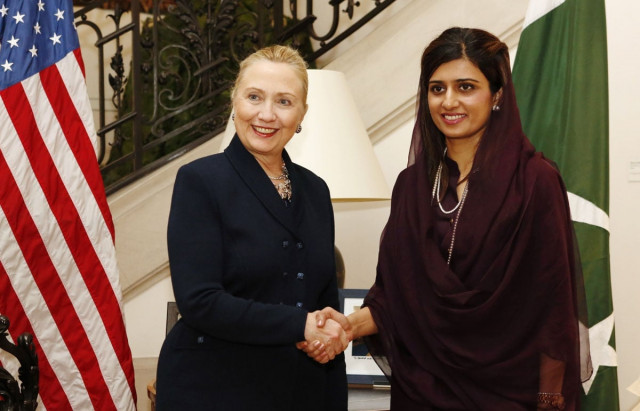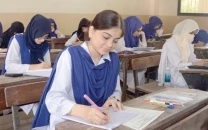US-Pakistan to discuss Afghanistan peace process in Brussels: Official
US acknowledges Pakistan's recent steps to support Afghan reconciliation. Focus on US-Pakistan bilateral...

According to a transcript of a pre-meeting briefing by senior State Department officials, an official said that the meeting's agenda would focus on counterterrorism, the future of Afghanistan and the way forward for the US-Pakistan relationship.
The official said that the Pakistan-Afghanistan bilateral relationship was very important. Citing latest developments such as the Afghan High Peace Council head Salahuddin Rabbani's visit to Islamabad, General Kayani's visit to Kabul and Afghanistan's Foreign Minister Zalmay Rassoul's visit to Islamabad, the official called these interesting developments.
"If you look at the joint statement that they issued, it talks about all of the things that the Secretary has been interested in over this past couple of years, which is their work together, economic aspects of this, peace and reconciliation. So there’s a lot, I think here, on the Pak-Afghan side in support of Afghanistan," said the official.
The State Department official added that the meeting of the core group, which has a subgroup working on safe passage for those Taliban members in Pakistan who want to move to start a conversation about peace and reconciliation.
"We were in Istanbul last November, where we got the region together to talk about a secure, stable, prosperous Afghanistan inside of a secure, stable, prosperous region. That effort – Istanbul, Bonn, and Chicago and Tokyo – really has been followed up, and Istanbul in particular has been followed up by the region. The Pakistanis have played a very good, I think, and constructive role on what they call the Heart of Asia process," said the official, adding that the regional aspect would be reviewed in Monday's meeting.
On the US-Pakistan relationship, the official highlighted the meetings of various working groups that had taken place between both countries, and announced that by the end of the year, there would be meeting for the working groups on energy and on strategic thinking going forward respectively.
"We want to see what we can do to move this relationship with Pakistan from an aid relationship to market access and trade. It turns out that the United States already takes 20 per cent of Pakistan’s exports. Huge numbers of goods, about 3,500 items come in under GSP, and we want to tie all that to the Secretary’s vision that she laid out last year in Mumbai for the New Silk Road. And it isn’t just for the economics, of course. It’s because there’s no success in Afghanistan and Pakistan unless the two of them are trading and then connecting Central Asia and South Asian economies. So the economic piece of this is extremely important and I’m sure will be part of the conversation on Monday night," said the official.
In response to a question, the State Department official said, "Pakistanis speak publicly not just to their own population, but to the Afghan population and to the Taliban and the insurgents about their desire for the insurgents to get into a political process in Afghanistan."
The official added, "I think it’s important to recognise that the Core Group has got this working group now established under it on safe passage. And so let’s say that Afghans start to talk to other Afghans about the future of Afghanistan. Some of those Afghans are in Pakistan, and so the fact that the Pakistanis would facilitate their movement to place X or Y or Z to participate in some kind of political talk, it seems to me is another important thing that they could do."



















COMMENTS
Comments are moderated and generally will be posted if they are on-topic and not abusive.
For more information, please see our Comments FAQ